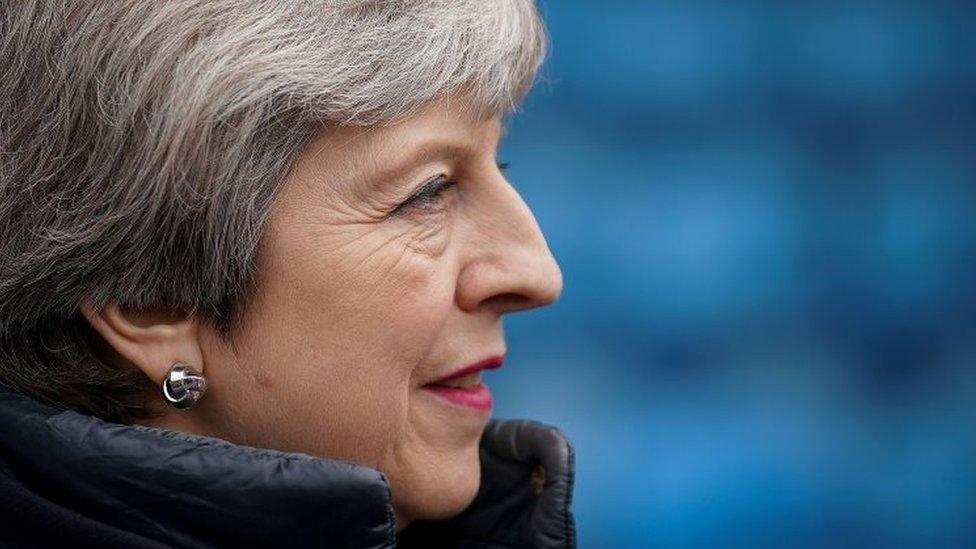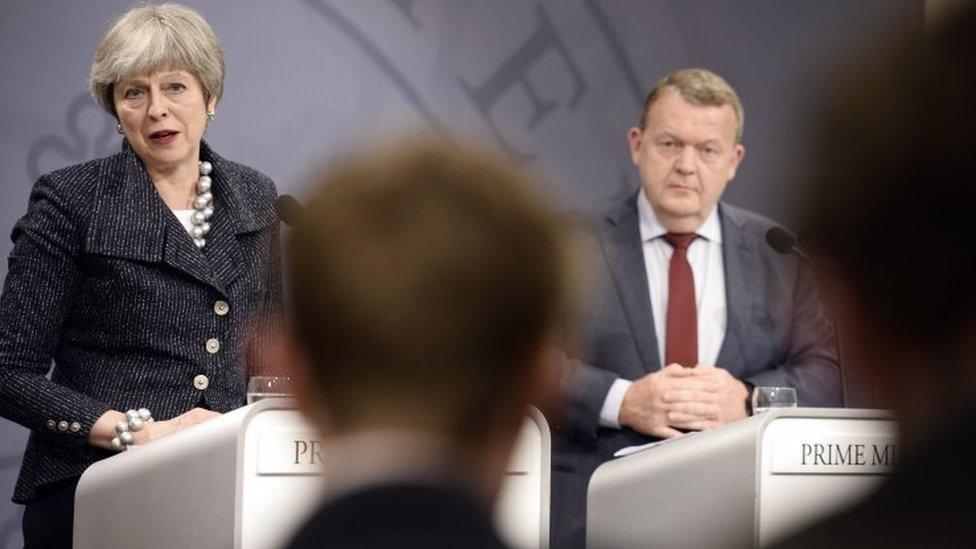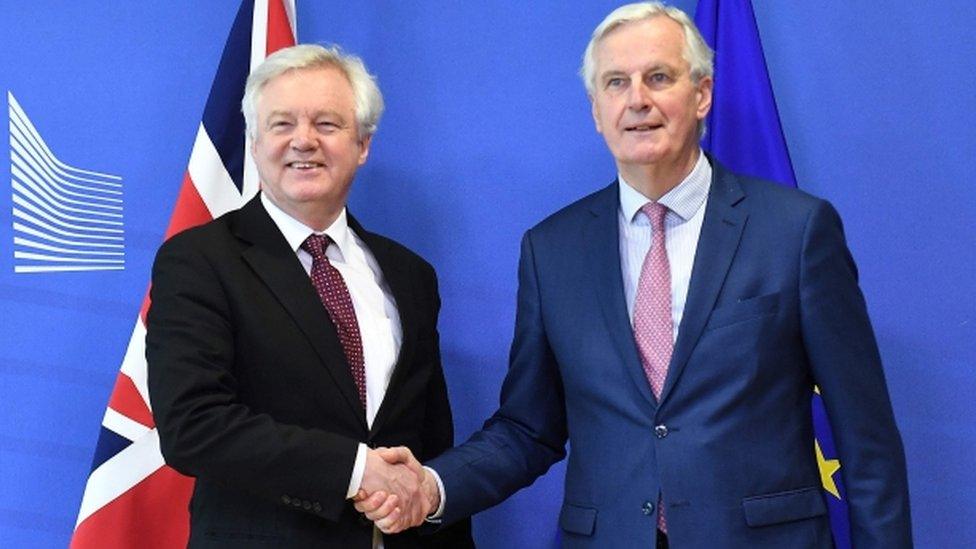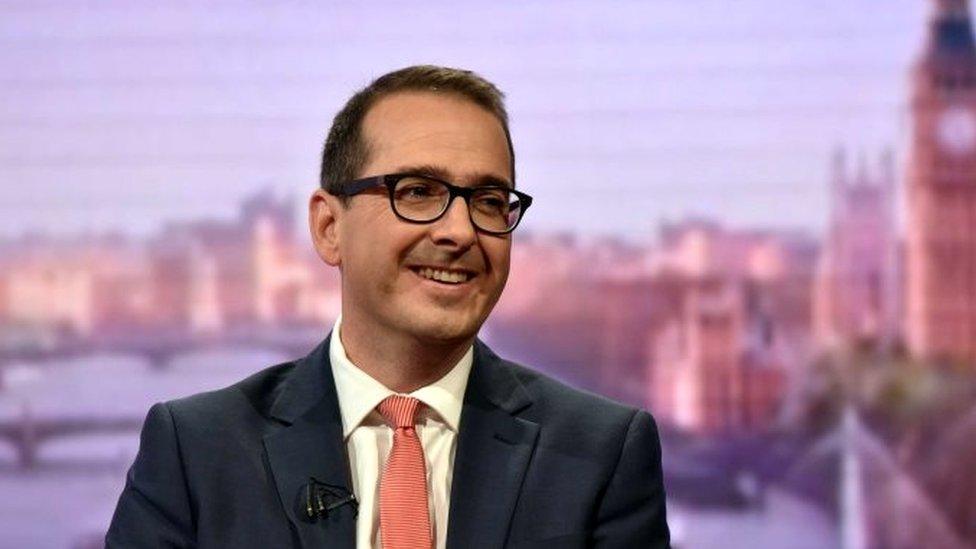Theresa May looks set to take action on Syria without consulting MPs
- Published

It's an understatement to say Theresa May tends not to rush into difficult, sensitive decisions.
She's spent pretty much her entire premiership living on a diet of awkward dilemmas and tough decisions. In just about every case, the May way has been to chew thoroughly before swallowing.
Just now she's having to chew over two tough decisions; will she join military strikes against the forces of the Assad regime in Syria - her first decision to attack another sovereign state - and, secondly, will she seek Parliamentary approval in advance?
I'm hearing authoritatively that the answers are yes, and, in all probability, no.
The Syria crisis is in some ways as tough as it gets.
The prime minister's instinct is to chew carefully on the decision of whether and how Britain should support action in response to the apparent chemical attack in Syria. She still speaks of the need to act "if" not "as" the Assad regime is responsible.
But the uncomfortable truth is the form of action is beyond her control. That decision sits in the Oval Office of the White House, and President Trump has already helpfully warned Russia to look out, because the missiles are coming to punish the illegal use of chemical weapons.
There's no serious doubt Theresa May wants Britain to be involved in any military action - she as good as said as much today when she spoke about the need to "prevent and deter" any future chemical attack in Syria, which clearly implied punishment.
And, remember, a lot of British credibility and influence as a global player is seen as being tied up in this.
Handling Parliament is a delicate task.
Yes, David Cameron tried and conspicuously failed to get the endorsement of the House of Commons for action in response to a chemical strike in 2013. That defeat still burns in Tory memories.
Jeremy Corbyn is saying Parliament should always have a say in military action.
Not all Tories support British military involvement.
But there's no legal or constitutional requirement to seek advance consent at Westminster for a strike. Action can be ordered using prerogative powers. And some in government believe that it will.
If the prime minister acts first and consults Parliament later, she can expect a hostile reaction from her opponents.
They'll accuse the prime minister of dancing to the President's tune. His latest tweets didn't help, and landed with quite a thud in Whitehall. It's looking harder each day for Mrs May to keep up let alone keep in step with President Trump.
Today, Mrs May ducked question of recalling Parliament.
But I'm picking up the sense inside government that Mrs May's may just see consulting Parliament, in advance of action, as a luxury she can't afford.
A recall of Parliament takes time, usually a couple of days.
Mrs May is said to see action as urgent, for the sake of heading off another chemical attack.
And, though I doubt she'd put it like this, she's thought by some insiders to be reluctant to ask her ally in the White House to hold off while she squares opinion at Westminster.
For a naturally cautious leader like Mrs May this would be difficult at the best of times - and these are far from being the best of times.
- Published10 April 2018

- Published23 March 2018

- Published19 March 2018

- Published23 March 2018
